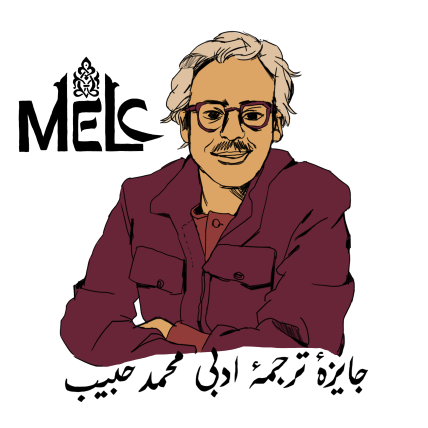
MELC enthusiastically calls for submissions for the second cycle of the Mo Habib Translation Prize in Persian Literature. Established in partnership with the Mo Habib Memorial Foundation and Deep Vellum Publishing, the prize seeks to enable the publication and dissemination of Persian literary works that stand on their own in engaging English translation. Dr. Michelle Quay was its inaugural winner for her translation of Reza Ghassemi’s novel Woodwind Harmony in the Nighttime.
This cycle will focus on Persian poetry (any genre or period, from the 10th century CE to the present day). Bi- or multilingual projects are welcome (e.g. Persian-Arabic, Persian-Pashto). Translators are free to propose the translation of one or more collections of poems (no fewer than 50 and no more than 250 texts) from a single poet or multiple authors, provided that the final manuscript is submitted by the deadline. The winning translation will receive a prize of $10,000 ($2,000 once the award is announced in June 2024, and $8,000 once the work is turned in by the deadline May 2025). This prize comes with a commitment by Deep Vellum to publish the translated work. Please submit the following materials in a single PDF file by May 1, 2024 (new/extended deadline):
-
A two-page cover letter that describes the work to be translated and speaks to its larger import. Has this work been translated into English before? How does your translation compare to previous translations? The cover letter should also contain a short commentary (no more than 300 words) on the applicant’s approach to the translation of the work: expected obstacles, your plans for rendering the formal aspects of the original text in English, etc.
-
An up-to-date CV (no more than 3 pages)
-
A bilingual sample of the proposed translation (five texts or between 10 and 15 pages, single spaced, in both languages)
-
Proof of copyrights (if applicable)
Note that sample translations as well as the final manuscript must be the unique creation of the applicant and should not replicate or significantly mirror other translators’ work or computer-generated automatic translations, such as Chat-GPT. All translations are scrutinized for plagiarism, and the award administrators retain the authority to disqualify any submissions suspected of including plagiarized material.

The Mo Habib Memorial Foundation celebrates the life and legacy of Mohammad Habib by supporting education, culture, and the arts in the Pacific Northwest and beyond. Born in Tehran in 1952, he moved to the U.S. in 1970 to attend college, eventually obtaining his BS and MS in Engineering and Construction Management from the University of Washington. For forty years, he worked as a project manager and structural engineer. Mohammad is survived by his wife, Superior Court Judge Susan Amini, and his son, Cyrus Habib, who served as the state’s 16th Lieutenant Governor prior to leaving public life to become a Jesuit.
Founded in 2013 in Dallas, Texas, Deep Vellum's mission is to bring the world into conversation through literature. In its first five years, Deep Vellum published 90 works in translation by international writers (see here) and hosted dozens of literary events for Dallas residents.
FAQ
- Do I need to obtain a legal license for a book published in Iran? Iran has not signed the 1886 Berne Copyright Convention that protects literary and artistic works by providing creators with the means to control how their works are used, by whom, and on what terms. And because there is no copyright treaty between Iran and the US (see, for example, the United States copyright law, 17 U.S.C. § 104), works by Iranian authors first published in Iran fall immediately into the public domain in the United States. Although not legally obligatory, it would be more ethical to obtain permission from the author. Unlike Iran, however, Afghanistan and Tajikistan are both signatories of the Copyright Convention, so unless the source text is in the public domain, a copyright permission would need to be obtained.
- I already have a contract with a different publisher, could I still apply? No. The winning translation is to be published by Deep Vellum, so you may not have entered into a contract with a different publisher.
- My project will not be complete by May 2025, may I still apply? We warmly encourage you to apply for another cycle. Our projected timeline for this cycle is submission of the final manuscript by no later than May 2025.
- Would it be possible to publish a bi- or multilingual edition? That would be wonderful! The winning translator(s) would have to explore this possibility with Deep Vellum.
- Could I propose a poetry anthology in translation? Yes, we welcome anthologies that are organized by theme, period, or style.
- What will the third cycle focus on and when will it be announced? There will be a call to translate a yet to be determined Persian classic that is currently unavailable in an accessible and engaging English translation. It will be announced September 2024, inshallah! ojalá! dai Bog! mirtzeshem! si Dieu vlé!
All inquiries should be directed to Aria Fani (ariafani@uw.edu)
Artwork by Amelia Ossorio, MELC student majoring in Persian